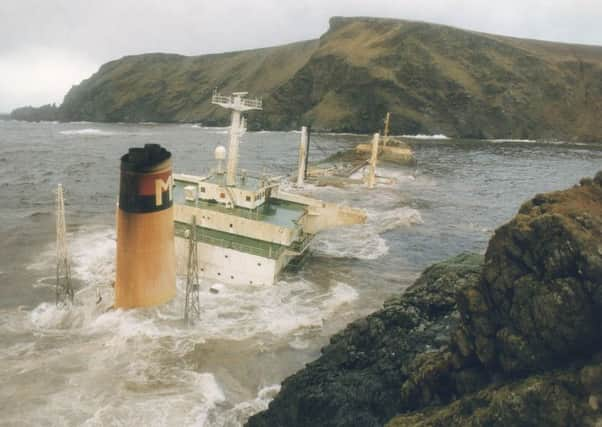Innovative new wood sponge could mop up devastating oil spills


The novel sponge can be squeezed out and reused, is biodegradable and made from renewable resources.
The developers believe the creation could offer a cheap, efficient and non-harmful solution for mopping up oil leaks and greasy discharges in rivers and oceans.
Advertisement
Hide AdAdvertisement
Hide AdNumerous innovative techniques have already been invented to clean oily water, from gravity separation to burning and bioremediation using bacteria.
But many of these methods are highly expensive, have limited efficiency or cause secondary pollution.
Xiaoqing Wang and colleagues at the American Chemical Society created the sponge by treating natural balsa wood with chemicals to reduce it to a cellulose skeleton, then adding a hydrophobic coating that attracts oil but not water.
Tested in a mixture of water and silicone oil, it removed all the oil. It has the ability to absorb up to 41 times its own weight, and can endure at least ten cycles of absorption and squeezing.
Katie Abbott, environment manager for trade association Oil & Gas UK, said it could prove useful for the North Sea industry, which continues to seek innovative ways to address risks.
She said: “While major environmental incidents are rare, a variety of recovery options can be implemented in response to hydrocarbon releases. Absorbent materials are one of the many tools available for use offshore today and are often used on an installation proactively, to prevent hydrocarbons reaching the marine environment from routine activities such as breaking containment and to clean up small releases on deck.”
In 1993, the Braer oil tanker ran aground off Shetland in hurricane-force winds, spilling 85,000 tonnes of crude oil.
It was the worst marine oil spill to have occurred in Scottish waters, killing at least 1,500 birds and affecting up to a quarter of local grey seals.
Advertisement
Hide AdAdvertisement
Hide AdDr Sam Gardner, acting director of green group WWF Scotland, said: “Scotland is no stranger to the devastating impacts an oil spill can have on the natural environment, with the Braer disaster still in the forefront of many people’s minds 25 years on.
“Although research such as this is important to help mitigate the often devastating impacts of an oil spill, it cannot remove the risk of environmental and economic impact.”